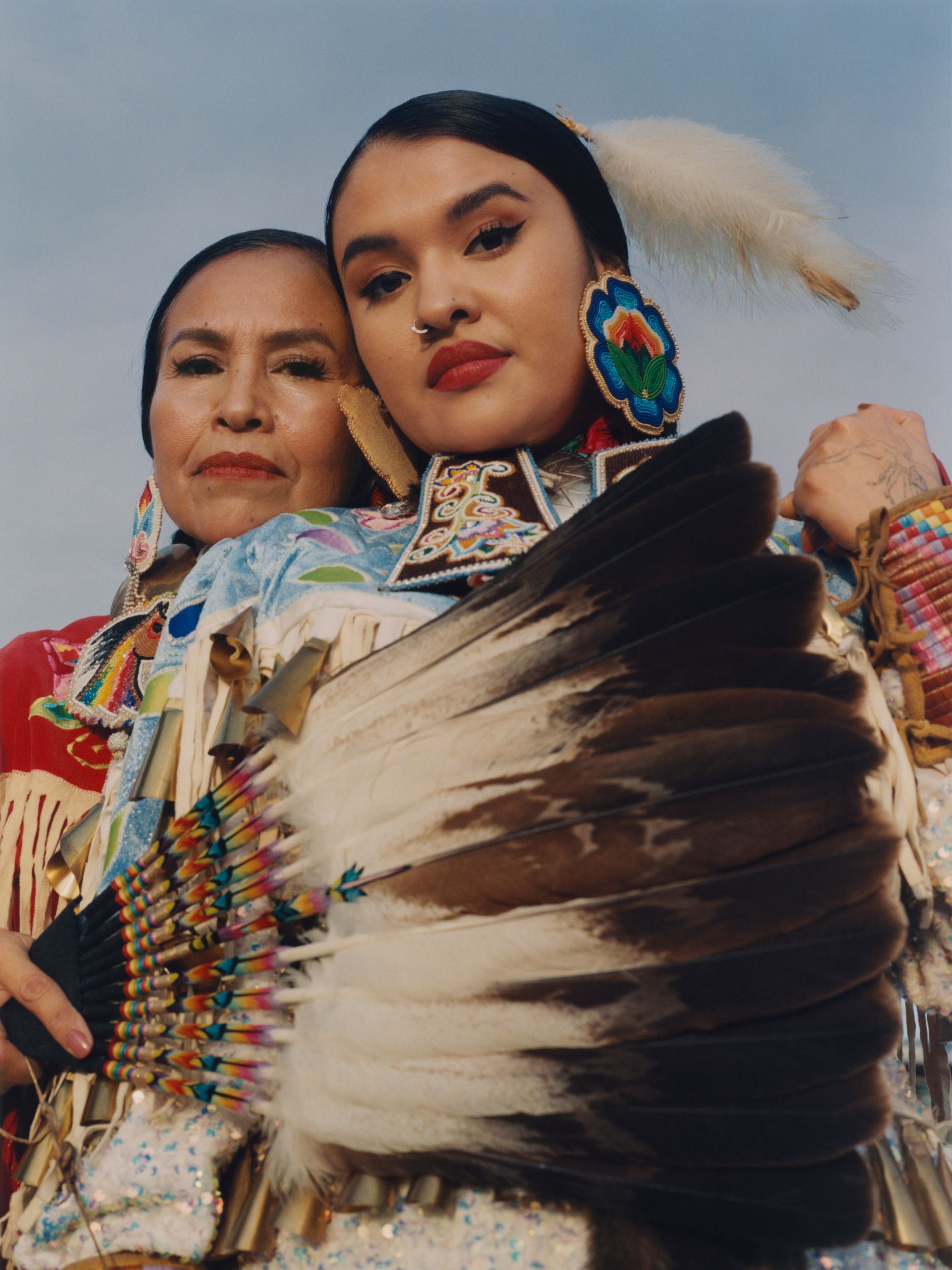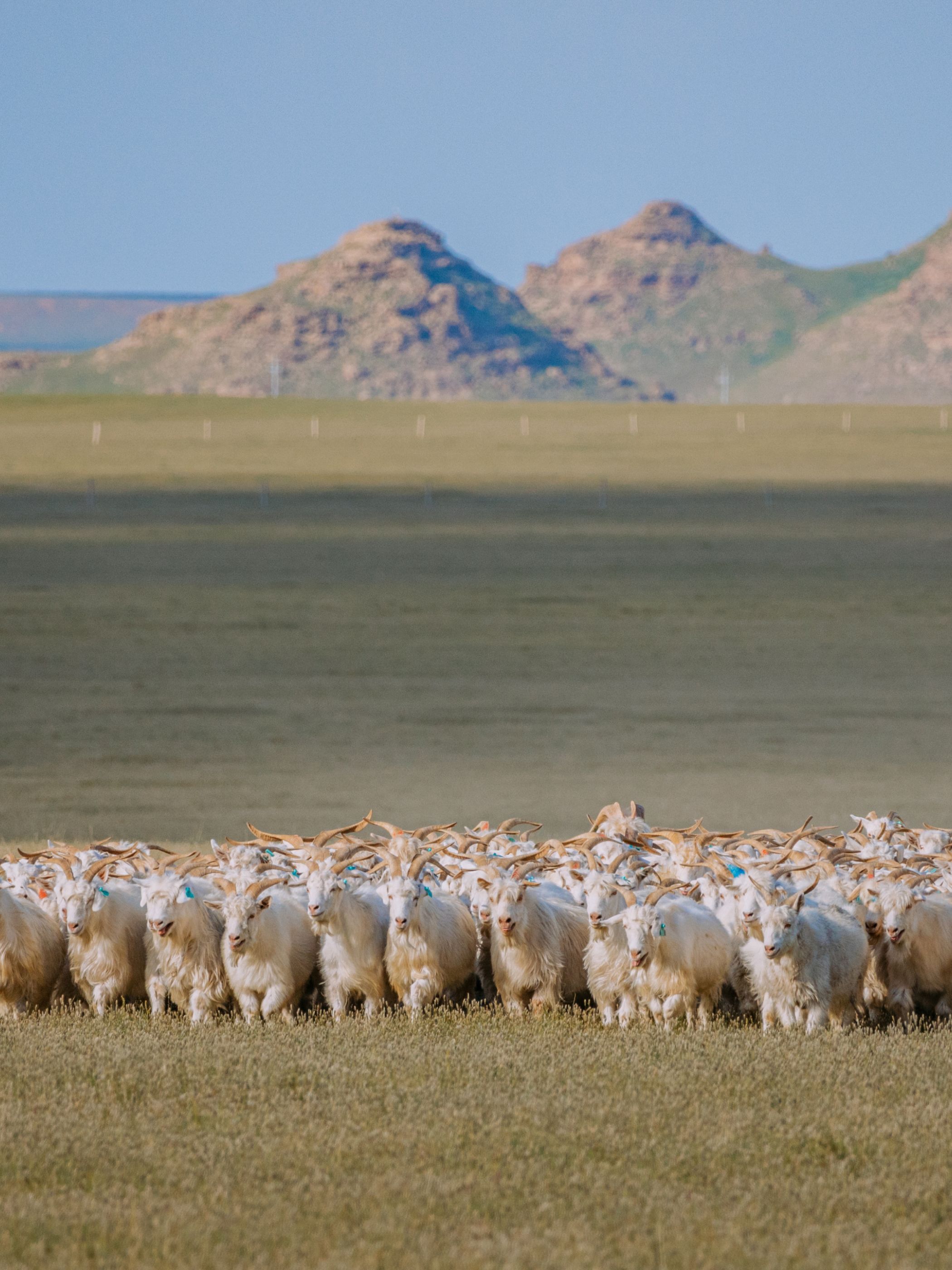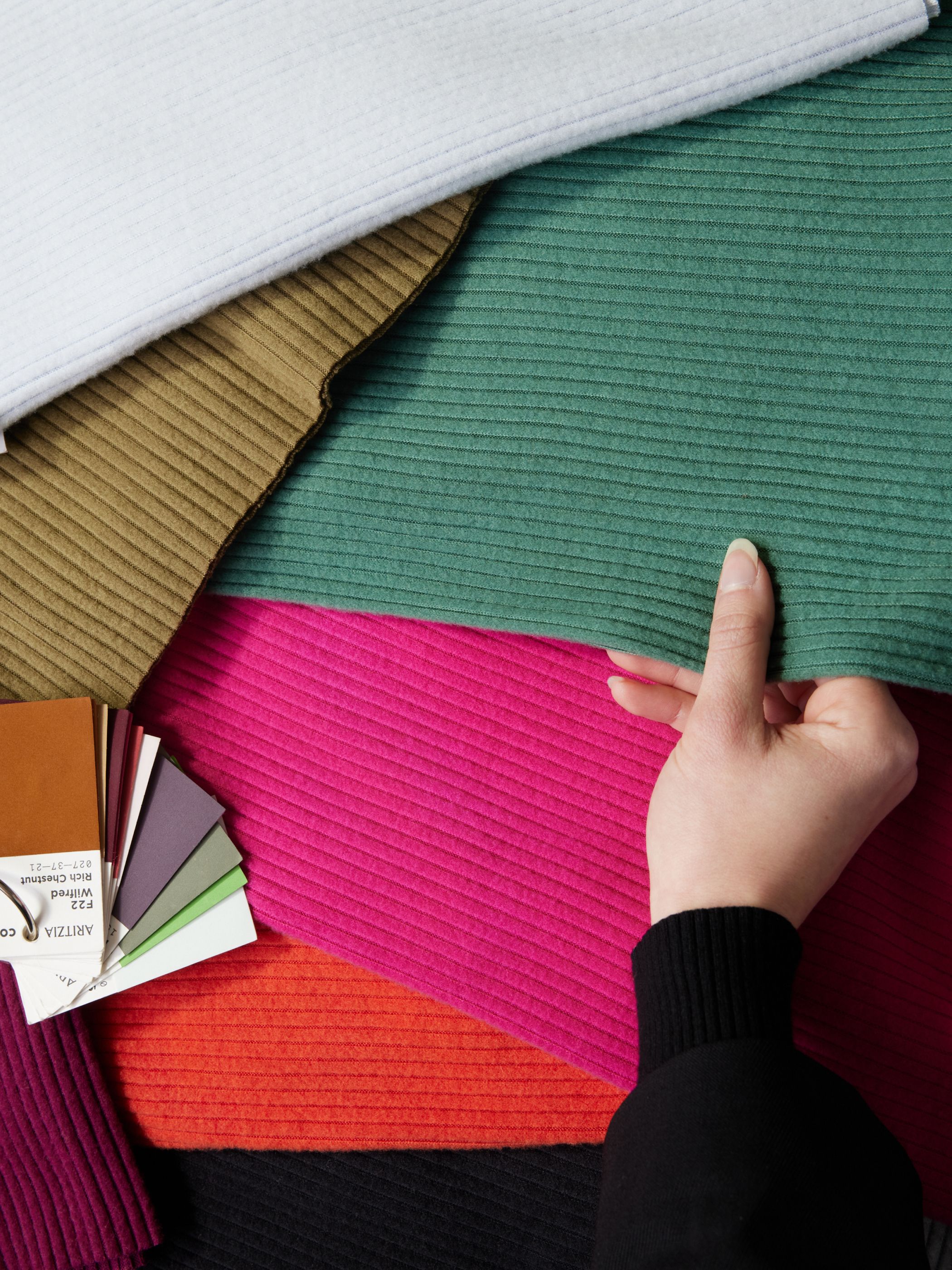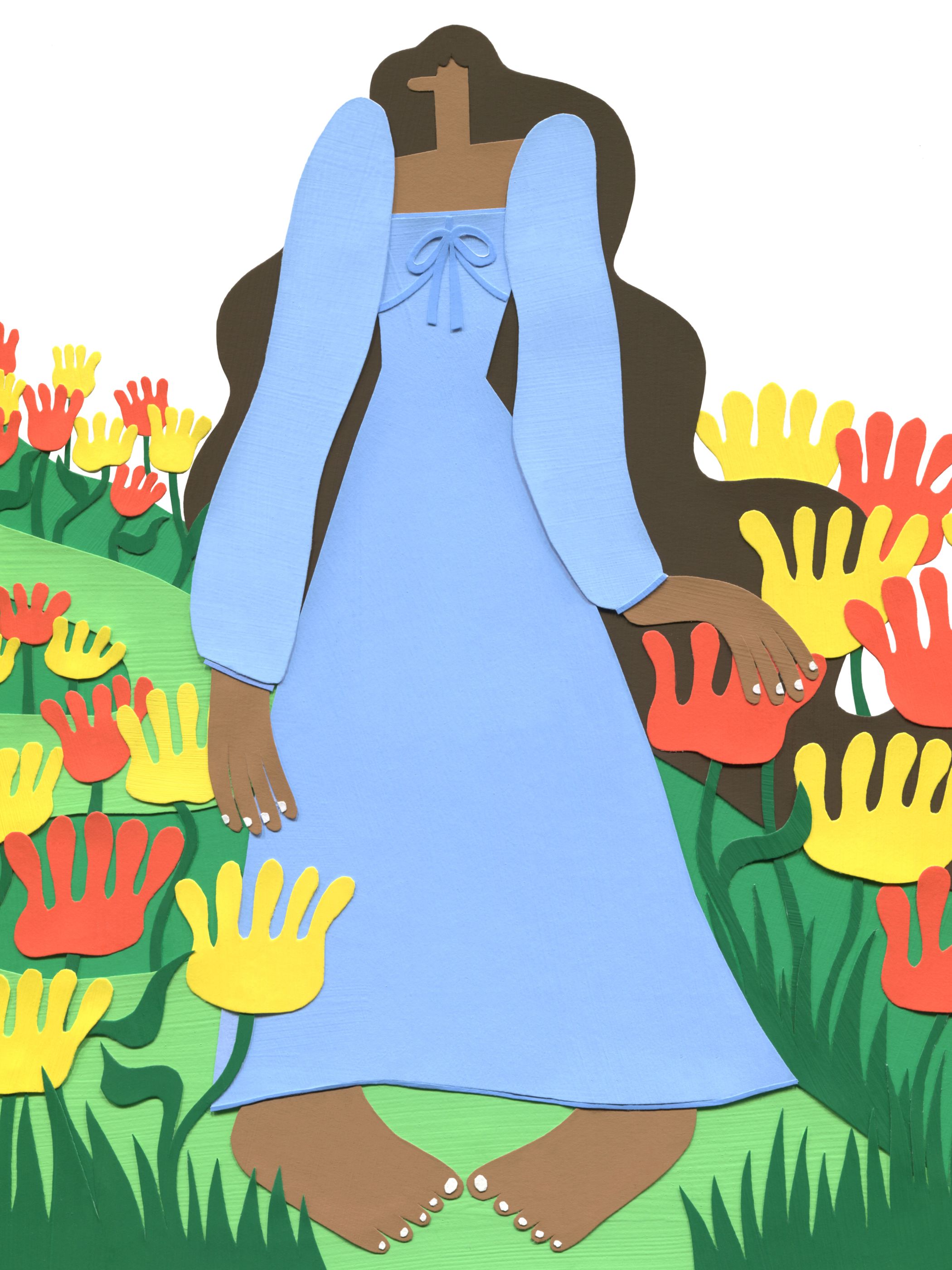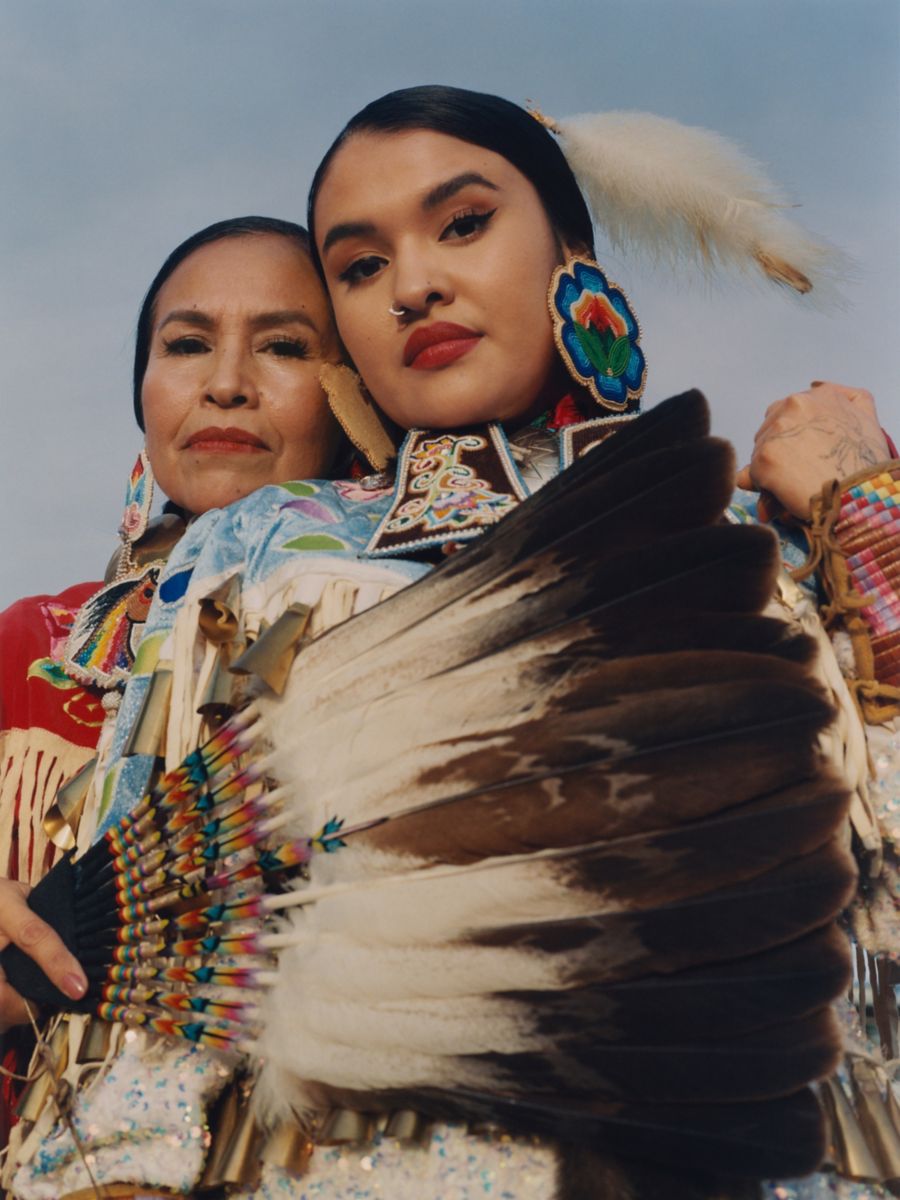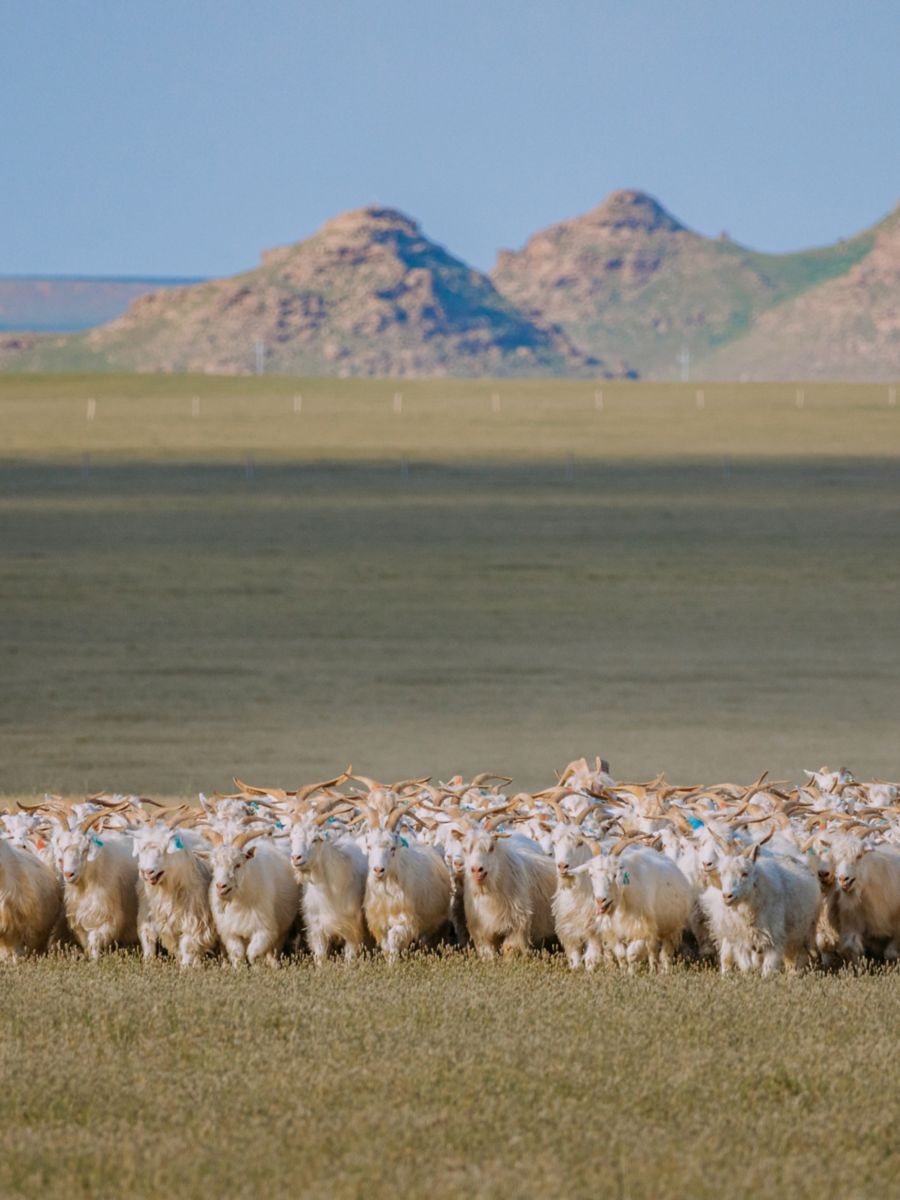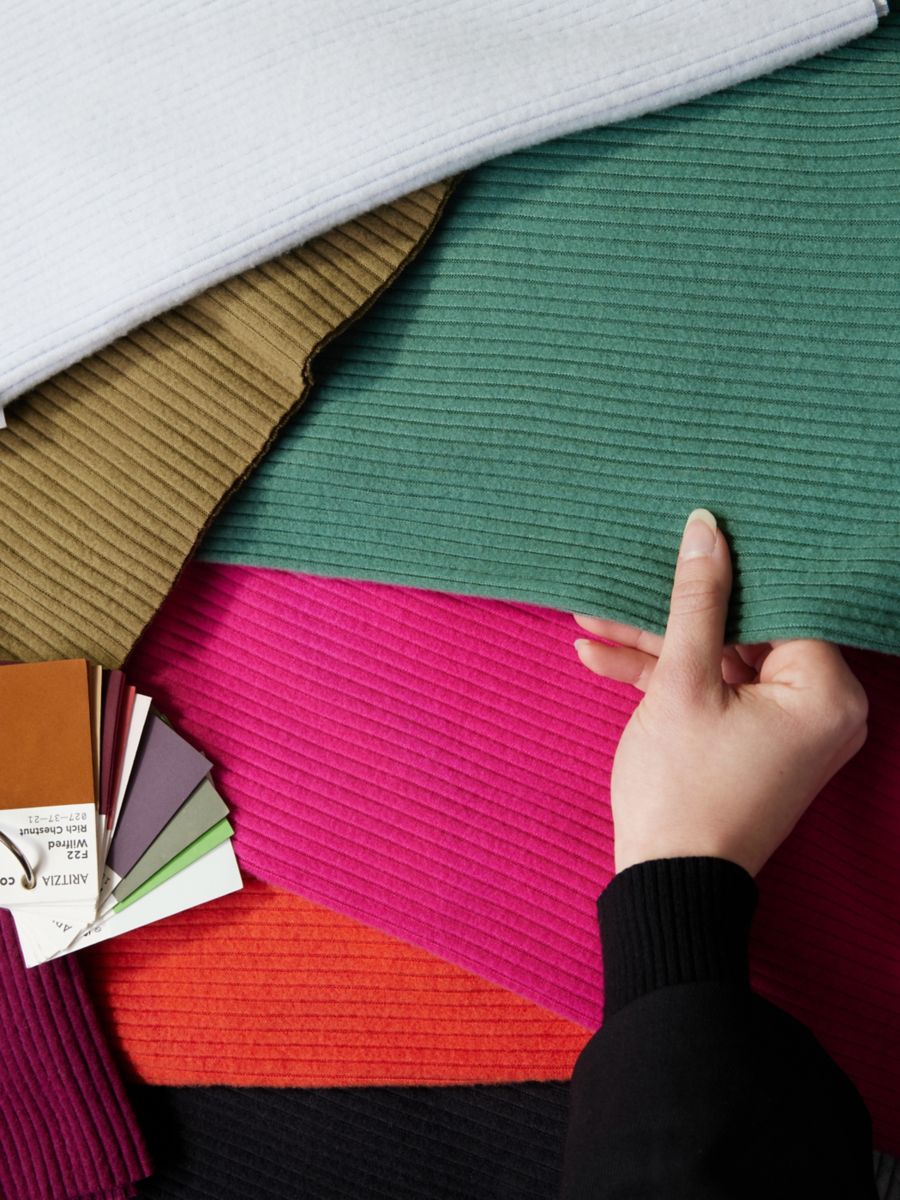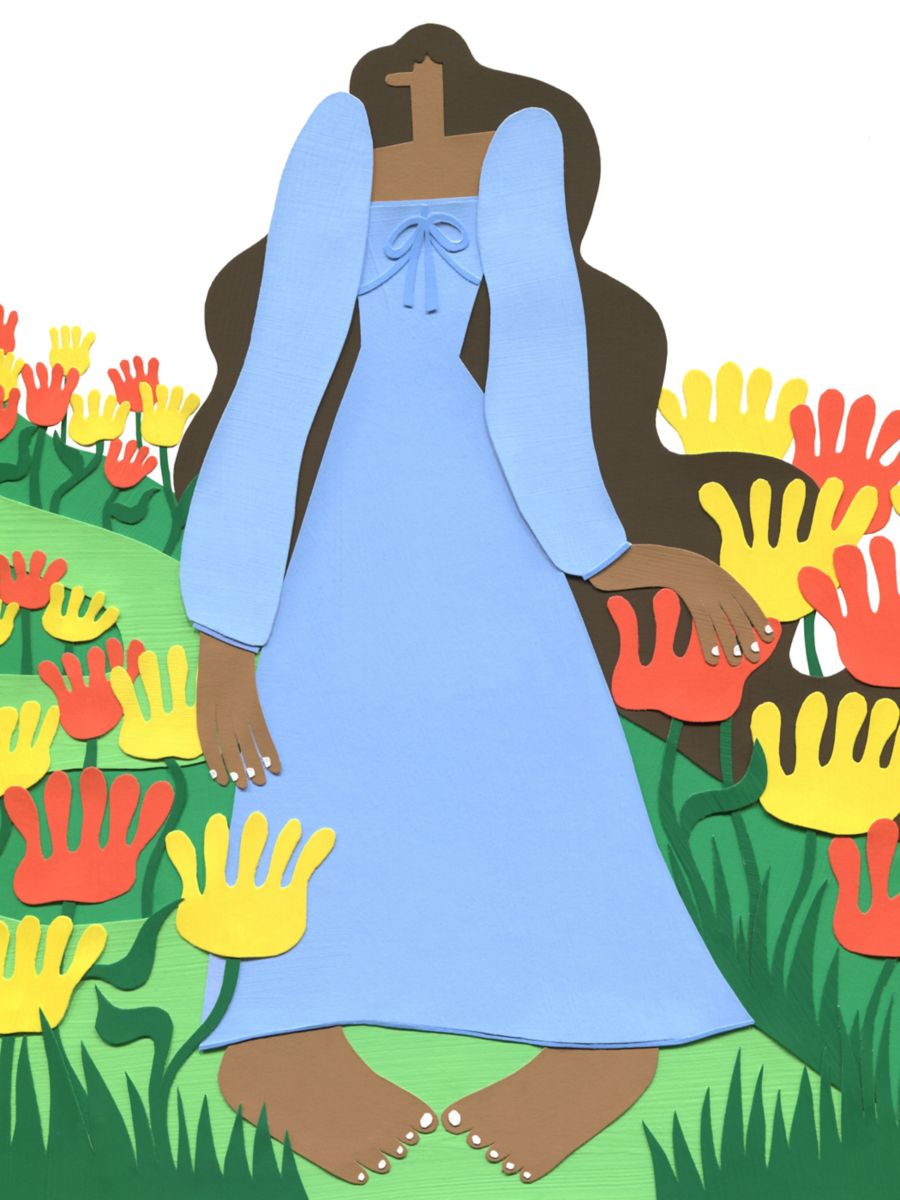

Recycled Materials
Sourcing recycled materials reduces their carbon footprint and puts waste back into use. We source post-consumer recycled polyester made from used plastic bottles and recycled nylon made from old fishnets — both certified by the Global Recycled Standard (GRS). We also accept recycled materials certified to the Recycled Claim Standard (RCS). As agricultural production can have a significant impact on biodiversity and the climate, we also source recycled wool, cashmere and cotton.

From Forest to Fabric
To protect endangered and ancient forests, we source viscose and other wood-based materials from more sustainable sources and use Forest Stewardship Council (FSC) certified fabrics where possible. All our Lenzing fibres — including LENZING™ ECOVERO™ Viscose, TENCEL™ Modal and TENCEL™ Lyocell — are derived from renewable or sustainably managed wood sources. TENCEL™, LENZING™ and ECOVERO™ are trademarks of Lenzing AG. We’ve also signed the Canopy Commitment, meaning we’re committed to sourcing 100% of our wood-based cellulosic fibres from forests that are not classified as endangered or ancient.

Organic Materials
Organic materials are grown without synthetic pesticides and fertilizers, reducing the chemicals and greenhouse gas emissions associated with raw material production. It's better for the soil, the environment and workers' health. Aritzia is brand certified to the Global Organic Textiles Standard (GOTS) and the Organic Content Standard (OCS).

Responsible Cashmere
Cashmere is an important fibre in our raw material mix, and essential to our Everyday Luxury offering. To ensure our cashmere is ethically sourced, Aritzia is a member of The Good Cashmere Standard®, an independent standard for responsible cashmere developed by the Aid by Trade Foundation (AbTF). The standard was created to improve the welfare of cashmere goats, with respect to the Five Freedoms, as well as the economic, social and ecological conditions of cashmere farmers, their families and communities in Inner Mongolia.

Responsible Down
Down is a key material in our outerwear program. We use goose down because it's one of the world's best insulators. Down is biodegradable, renewable and recyclable — and it lasts for decades.
We source goose down that's certified to the Responsible Down Standard (RDS). Every step of the supply chain, down to the farm, has been inspected by an accredited independent certification body that upholds the RDS's strict requirements — ensuring our down is sourced from geese who receive adequate food, space, shelter and fresh water, and who are never force fed or live plucked.

Responsible Wool
Wool is a naturally sustainable and biodegradable material, constructed to last, providing unparalleled warmth and luxurious softness.
Aritzia acknowledges that the quality of wool we use is as important as the animal welfare standards and land management practices — which is why, whenever possible, we source wool certified to the Responsible Wool Standard (RWS). The RWS certifies wool farmers, ensuring that wool comes from farms with a progressive land management approach and from sheep that have been treated responsibly

Lower Impact Cotton
Cotton is one of our most important raw materials. While cotton is a renewable and natural commodity, conventional production uses high quantities of water, pesticides and fertilizers, which has a significant impact on our planet.
We’re committed to using cotton from sources that minimize its impact on the planet, respect the ecosystems in which it’s grown and the livelihoods of its farmers. The majority of cotton we use is recycled, organic, or sourced through Better Cotton Initiative (BCI).
Cotton sourced through BCI is mixed with other cotton on its journey from the field to the final product. By sourcing cotton through BCI, we’re supporting cotton production standards that reduce negative impacts to the environment and improve farmer livelihoods. See here for more details.

Responsible Sourcing Techniques & Animal Welfare
We adhere to a comprehensive Materials Sourcing Policy to which we hold our suppliers accountable. These policies cover our standards for materials, worker health, animal welfare, fabric processes and treatments, and raw material origin and traceability. We obtain chain of custody and facility certification documents to validate all claims that we make on our products.
We prohibit the use of fur or angora in any of our products to preserve animal welfare and have banned garment sandblasting based on impacts to worker health.
We also adopt the use of animal-derived materials from recycled sources as well as innovative and more sustainable alternatives that are animal free but offer the same performance and quality.

Regenerative Materials
Materials produced through regenerative practices help restore soil health and protect biodiversity. By working with nature instead of against it, regenerative agriculture embraces holistic techniques that require less water and fewer chemical fertilizers, herbicides and pesticides. It also makes efficient use of the land in ways that complement local ecosystems. Together, these regenerative practices reduce negative impacts on our planet by removing carbon dioxide from the atmosphere and storing it in the soil.
Aritzia sources regenerative cotton certified by regenagri®, an international initiative that uses a chain-of-custody system to certify the use of regeneratively grown fibres — from farm to final product. Beginning in fall 2023, we’re producing indigo denim styles across our Denim Forum collection with regenagri® regenerative cotton.
- Environmental management systems
- Water
- Effluent
- Chemicals
- Energy and GHG
- Air emissions
- Waste
Based on the results of their assessment, we work collaboratively with suppliers on Performance Improvement Plans to support them in meeting the environmental standards set out in our Environmental Policy.















